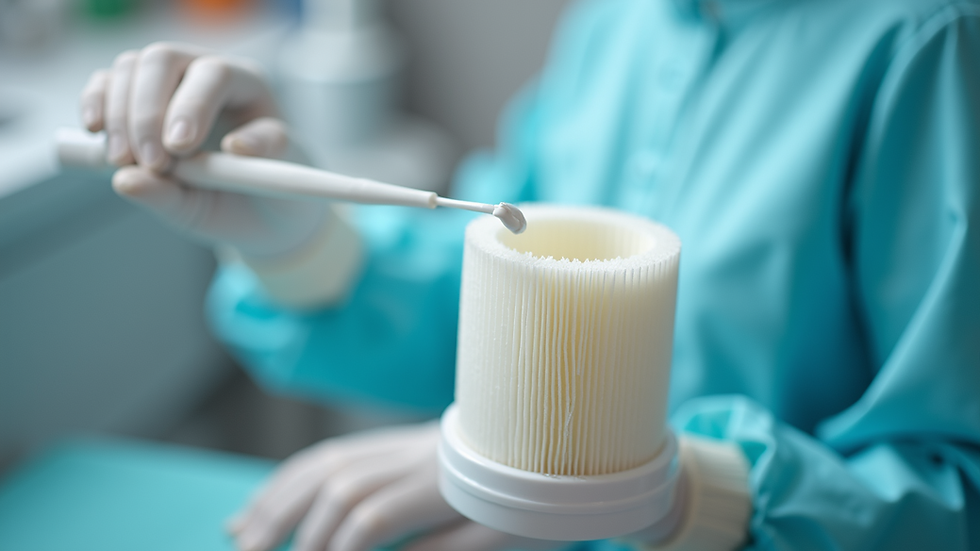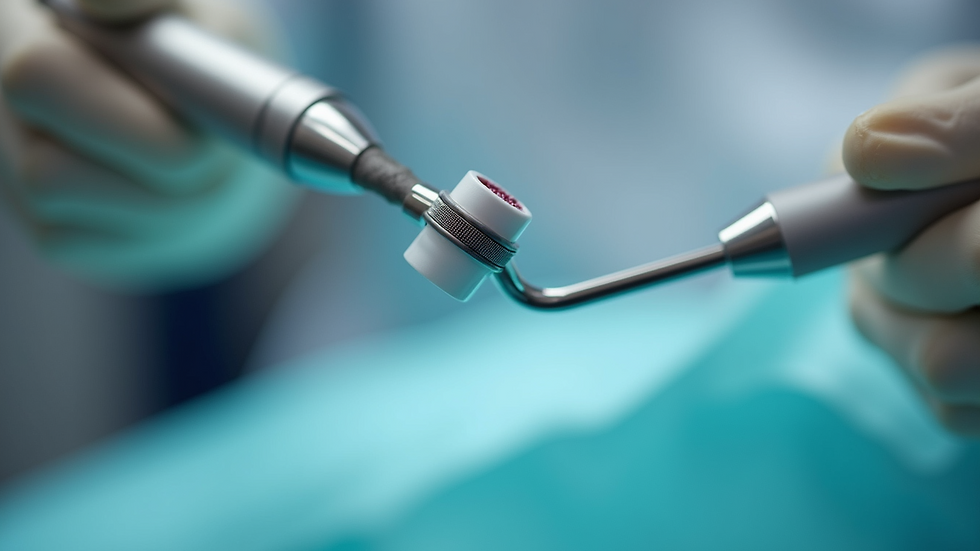The Importance of Regular Dental Filter Checks
- Randy Coppernoll
- Mar 3, 2025
- 4 min read
In the realm of dentistry, every component plays a crucial role in delivering effective patient care. One integral part of this care involves ensuring that dental filters are regularly checked and maintained. Dental filters serve as a gatekeeper, helping to ensure that the air and water used in dental procedures remain clean and safe. This post explores the importance of regular dental filter checks, the different types of filters, and actionable steps dental practices can take to maintain their systems effectively.
Understanding Dental Filters
Dental filters are essential components of dental equipment, designed to trap and eliminate contaminants from the air and water systems. They help safeguard your Bison, Bulldog, Aeras, Osprey, vacuum, and compressors from potential hazards. With contaminated water or air, the risk of complications increases significantly. Regular maintenance of these filters is paramount to ensuring the quality and safety of dental procedures.

For example, consider how filters help keep the air free from debris. When dental tools are in use, aerosol particles can be generated. If these particles include pathogens, they can pose serious health risks to both patients and dental staff. Regularly checking and replacing filters not only promotes a hygienic environment but also enhances the overall effectiveness of dental operations.
Significance of Regular Dental Filter Checks
Regular checks and maintenance of dental filters are vital for several reasons:
Health and Safety: Safeguarding the health of patients and staff is the top priority in any dental practice. Regular filter checks help to eliminate harmful substances from the air and water supply, reducing the risk of infections.
Efficiency: Clean filters allow equipment to function optimally. When filters are clogged or dirty, dental machines may not perform at their best, which can lead to delays and complications during procedures.
Cost-Effectiveness: Regular maintenance can prevent costly repairs or replacements down the line. It’s much more economical to replace filters periodically than to face extensive equipment failures due to improper maintenance.
Compliance: Many health regulations dictate strict standards for patient safety. Regular dental filter checks ensure compliance with these regulations, thereby fostering trust and credibility amongst patients.
Equipment Longevity: Regular checks extend the life of dental equipment. A well-maintained system is less likely to break down, ensuring continuity in patient care.

What are the Three Types of Equipment Maintenance?
In the context of dental filters and overall dental equipment, maintenance can typically be categorized into three types: preventive maintenance, corrective maintenance, and predictive maintenance.
Preventive Maintenance: This type of maintenance involves regular, scheduled checks and replacements of filters to prevent future issues. It could include tasks such as cleaning air ducts, changing out water filters, and ensuring that all systems are functioning as they should.
Corrective Maintenance: This happens when a piece of equipment breaks down and needs to be fixed. This maintenance usually comes as a reaction rather than a plan, and often results in downtime and potential disruption of patient care.
Predictive Maintenance: This approach involves monitoring equipment conditions and performance to anticipate when maintenance should be performed, based on statistical analysis of equipment longevity and performance metrics. This ensures that equipment is serviced just before it may need repair, which can significantly reduce costs and downtime.
By understanding these maintenance types, dental practices can develop a robust strategy to keep their operations smooth and efficient.
Practical Recommendations for Dental Practices
To ensure that dental filters are always in optimal condition, consider implementing the following best practices:
Schedule Regular Checks: Set a regular schedule for inspecting and replacing dental filters. Establishing a routine helps ensure that no filters are overlooked and that maintenance is performed in a timely manner.
Train Staff: Equip dental staff with knowledge about the importance of filters and how to maintain them. Regular training sessions can ensure everyone understands their role in keeping the practice safe and efficient.
Document Maintenance: Keep detailed records of all maintenance activities. Documentation can help identify patterns or issues, which can inform future maintenance decisions.
Engage Professionals: Consider hiring professionals for detailed maintenance checks. Regular assessments by qualified technicians can uncover hidden issues that may not be apparent during routine checks.
Invest in Quality Filters: PMFILTERKITS.COM. While it may be tempting to choose the cheapest option available, investing in high-quality filters can lead to long-term benefits including less frequent replacements and better overall performance.

Empowering Your Dental Practice with Maintenance
Understanding the significance of regular dental filter checks is more than just good practice – it's fundamental to ensuring patient safety and operational efficiency. While keeping up with these checks might seem like a daunting task, it is essential for long-term success. By adopting a proactive approach to filter maintenance, dental practices can ensure they meet the highest standards of care.
Incorporating regular checks as part of your routine not only guarantees compliance with health regulations but also builds trust with your patients. A well-maintained practice reflects professionalism, which can lead to increased referrals and patient satisfaction.
Explore resources and options for dental equipment maintenance to simplify your filter management process and enhance your dental practice’s operational workflow. Remember, the health of your patients and the longevity of your equipment depend significantly on the diligence with which you manage your dental filters.



Comments